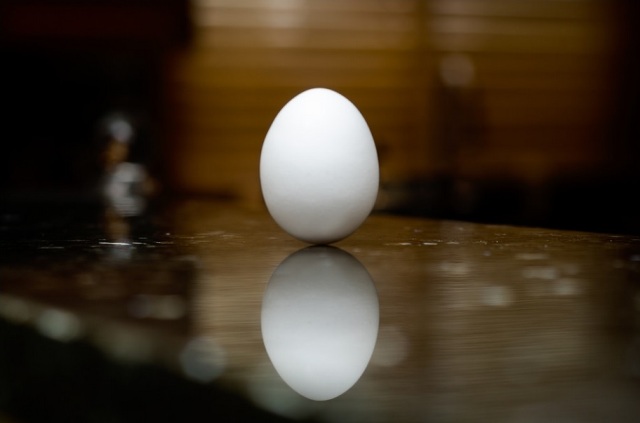Are Chickenless Eggs Our Future?
By Melissa Wiley in Food on Jun 16, 2014 7:30PM
Animals are the world’s least efficient source of protein. Only 25 percent of a live chicken’s weight constitutes consumable meat. And if you’re still wondering what comes first—the chicken or the egg—the answer is sorghum and peas.
Chickenless eggs, in other words, may be our future, and San Francisco’s Hampton Creek Foods is putting our new tomorrow on supermarket shelves. Founder and CEO Josh Tetrick wants nothing less than to make roosting hens obsolete.
Whole Foods, Safeway, Kroger and select Costcos recently began selling the company’s plant-based eggs nationwide. Meanwhile, Bill Gates and PayPal’s Peter Thiel are investing in further meatless means to feed a meat-hungry world, trying to curb the reported 18-percent of climate change emissions attributable to factory farming alone, a plume of exhaust that continues to billow as developing nations take their place at a table of bacon and eggs.
Commercial chicken farmers typically fatten their hens on corn and soy, both of which require extensive amounts of water and fertilizer, as well as further fossil fuels for transport. Offering itself as a clean-air alternative, Hampton Creek’s Just Mayo contains no eggs at all. The company also sells eggless cookies and other products usually glued with albumen with the goal of putting poultry out of business.
Intensive poultry farming exists for a reason. Since the 1980s, people living in developing countries have doubled their annual consumption of meat. According to an FAO report, that percentage is projected to double again by 2050. In 2000, the global demand for eggs reached 14 million tons, estimated the U.N.'s Food and Agriculture Organization, and will approach 38 million tons by 2013.
If Hampton Creek Foods and its backers have their way, a good portion of those will derive from plants.
“In the mayonnaise, we use a certain cultivar of the Canadian yellow pea. In the cookie dough, we use a type of sorghum. We're constantly screening plants from all over the world. Ninety-two percent of the plant kingdom hasn't been explored for its applicability in food,” Morgan Oliveira, communications direction for Hampton Creek Foods, told Chicagoist. “We're very careful to only use plants that have a small carbon footprint. We don't use resource-intensive crops like corn and soy, which are generally the crops chickens are fed.”
Eggs grown in soil, it turns out, are also cheap.
“As an ingredient, we can undercut battery-caged eggs by about 48 percent. And for large companies and food service, this is very appealing,” Oliveira said. “Because we use a plant instead of an egg, it allows us to make healthier products that are also more affordable. Our target demographic is anyone who would like to buy healthier food at a reasonable price. For us, it's a pretty great market. Nobody else is really doing what we're doing.”
